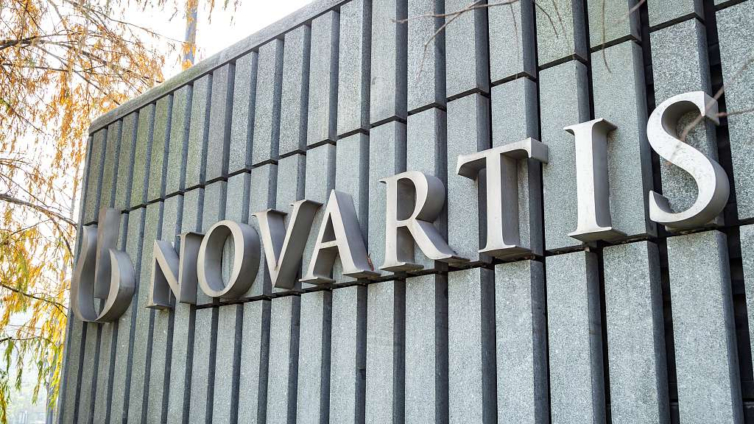Project Africa GRADIENT calls on local researchers to submit proposals exploring the link between genetic diversity and response to malaria and tuberculosis drugs in African patients; combined funding commitment of £2.8 million ($3.6 million) over five years; researchers based at universities, science councils and other public research organisations across Africa are invited to express ‘intent to submit’ by March 1, 2021.
GSK and Novartis today announced the launch of a collaboration to support high-quality scientific research investigating the link between genetic diversity across different regions in Africa and its potential impact on response to drug therapeutics.
The Project Africa Genomic Research Approach for Diversity and Optimising Therapeutics (GRADIENT), with a combined funding commitment of GBP 2.8m (USD 3.6 million) over five years, calls on African researchers to submit robust research proposals on the relevance of African genetic diversity to the treatment of malaria and tuberculosis.1
Pauline Williams, Senior Vice President Global Health Pharma at GSK said: “At GSK, human genetics is a core pillar of our R&D strategy.
Genetic diversity is greater in Africa than in any other continental population resulting in some African patients having varying response to treatments.
We are excited to launch Project Africa GRADIENT which aims to catalyse the best science in the continent to optimize treatment responses for malaria and tuberculosis, two infectious diseases that disproportionately affect African populations.”
Lutz Hegemann, M.D., Chief Operating Officer for Global Health at Novartis said, “Novartis has a long-standing commitment to improving and extending the lives of patients around the world. Our efforts include seeking innovative ways to improve the standard of care where possible.
"This is why we are excited by this important collaboration on scientific research on genetic diversity in Africa. It has the potential to improve the efficacy and tolerability of current and future medicines, starting with two of the most deadly diseases, malaria and tuberculosis.
"In alignment with our ongoing efforts to strengthen scientific capabilities in lower-resource settings, this project also provides opportunities for training young African scientists in the use of advanced research methodologies and mentoring on drug development.”
Project Africa GRADIENT comprises three funding mechanisms to support:
- Fellowships: A limited number of fellowships in academic institutions with a reputation for global excellence to collect and analyse data on determinants of drug response.
- Investigator-sponsored research: Hypothesis-driven research focused on understanding genetic regional variation in drug response.
- Seed-Fund: A limited number of projects to enable the exploration of new research goals, depending on the results from 1 and 2.
Within the scope of the agreement, the South African Medical Research Council (SAMRC) will administer the project, and a Joint Steering Committee will oversee the review of submitted proposals.
Priority will be given to research aimed at collecting data from currently under-represented regions and improving the scientific robustness of inconsistent data.
All datasets collated are planned to be released in a public database to catalyse a positive change in approach to understanding variations in treatment efficacy and safety for patients across the continent.
Prof. Glenda Gray, SAMRC President and CEO, said: “It is exciting to see more and more global partners taking interest in the challenges of Africa.
"We are delighted that partners are now seeking to address the challenges of Africa by their quest to understand the fundamental differences between genetics of Africa and the rest of the world.”
As a first step, researchers based at universities, science councils and other public research organizations across Africa are invited to express their ‘intent to submit’ through the SAMRC website.
Final award recipients are expected to be announced by end of 2021.
Latest Stories
-
Don’t bring soldiers to polling stations – Martin Kpebu
2 mins -
Ogyeahohuo Yaw Gyebi II retained as President of National House of Chiefs
17 mins -
Embrace ICT to fit in digital world – Ho NYA boss to youth
1 hour -
We don’t want armed soldiers at polling stations – Tanko-Computer
1 hour -
Drama as police corner armed robbers inside locked forex bureau at Lapaz
1 hour -
Nigerian-born conquers childhood hearing loss to become KNUST’s overall best graduating student
2 hours -
ECOWAS Court orders compensation for violations against New Force’s Shalimar Abbiusi
2 hours -
Dreams FC denies allegations of attempting to sign Najeeb Yakubu
3 hours -
Election 2024: ‘Right to free and fair elections non-negotiable’ – Akufo-Addo
3 hours -
Kurt Okraku took out my passport from the U23 squad that travelled to Japan – Najeeb Yakubu alleges
3 hours -
Where hope fails: Ghana’s decaying home for the destitute
3 hours -
NDC Mining Committee for 2024 campaign refutes allegations of recruiting thugs for elections
3 hours -
Traction Control: A lifesaver with an off switch? Here’s why it exists
4 hours -
I don’t need anyman to woo me with money – Miss Malaika 2024 winner refutes pimping claims
4 hours -
”Kurt Okraku sabotaged my national team career because I refused to sign with Dreams FC” – Najeeb Yakubu
4 hours

